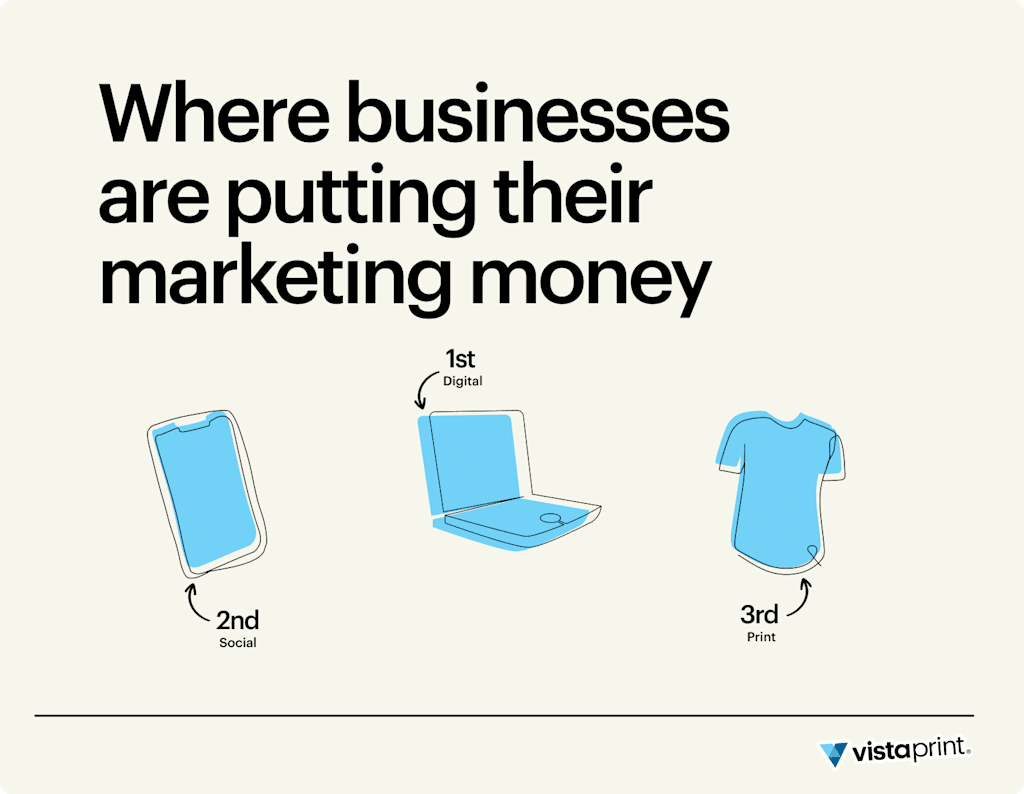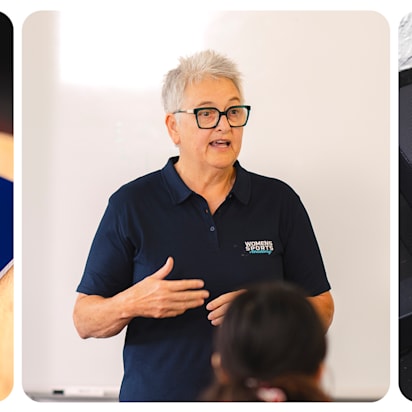As the design and marketing partner to small businesses around the world, we know that the start of a new year means new opportunities for Aussie businesses. Which is why VistaPrint Australia has just released its annual Small Business Report for 2025. We spoke with 500 small and medium businesses (SMB) across the country to hear their thoughts on how the year’s kicking off, the challenges they’ve faced, and what they’re looking forward to in the months ahead.
Despite a tough start to the year, SMBs remain optimistic
Over two-thirds (65%) of SMB owners have faced challenges in the first quarter of 2025, describing the start of the year as difficult, challenging, stressful and exhausting. And, economic factors seem to be the biggest pain point, with many worried about inflation (43%) and the possibility of a recession (38%). Standing out continues to be top of mind for business owners and rising competition (15%) is also a concern. As many as 2-in-5 (39%) say that AI has made it significantly (9%) or somewhat (30%) harder to stand out.
Even with a rocky start, the outlook for the rest of 2025 is positive. Half of SMBs interviewed describe their current mood as optimistic, positive, excited, or uplifted. 33% of business owners say that growing their customer base as their biggest opportunity this year, alongside expanding into new markets, offering customers a personalised experience and adopting new technologies.
It’s clear that small businesses are resilient. CEO of VistaPrint Australia, Marcus Marchant, says, “Despite the challenges facing small businesses in 2025, it’s encouraging to see that optimism remains strong. At a time of rapid change, businesses that embrace adaptability and innovation will continue to thrive.”

Politics plays a part (sort of)
2025 is an election year in Australia and many small business owners believe this will have an impact on business. Roughly 2-in-5 (38%) SMBs expect the upcoming election will impact their business positively while over a quarter (27%) expect things will remain the same; 17% anticipate challenges. When it comes to the potential for a change in government, opinions are divided. 14% of SMB owners see a change of government as an opportunity for their business, whereas 11% consider a change in government as a concern for their business.
Interestingly, despite the potential for political changes at home, it seems the global political landscape isn’t dampening Australian SMBs’ optimism. Nearly half (48%) feel well-prepared for the political shifts abroad, with 13% feeling very prepared and 35% somewhat prepared. In contrast, only 11% feel unprepared for the impact of global events on their business.
So, while local politics are definitely top of mind, it looks like small business owners are keeping their cool and staying focused on what’s next.
The rise of AI
AI has been a hot topic for SMBs for a while now, and this isn’t going to change in 2025.
Overall, Aussie SMBs are cautiously optimistic about AI’s growing role in business. Around 10% say AI helps streamline processes and create new opportunities, while 27% find it helpful but are cautious about relying on it too much. About 32% are neutral, seeing both pros and cons, while some business owners are concerned—11% are somewhat worried, and 15% are very concerned about AI replacing jobs, reducing creativity, and damaging authenticity and trust in the business world. Despite these concerns, 20.6% of SMBs plan to use AI for branding and marketing this year.
For those worried about AI, the main concerns include a lack of human touch (26%), data privacy and security risks (21%), and the accuracy of AI-generated information (21%).
AI has also impacted how businesses market themselves. About 39% of SMB owners say AI has made it harder to stand out – saying that AI has increased competition and made branding similar to some extent.Adding to that, 44% of SMB owners believe social media makes it harder to stand out as a brand. A whopping 62% believe AI-generated content could, or already does, dominate social media and other media channels. Nearly half (48%) say AI-generated content makes it tough to compete for share of voice.

The power of personalisation
With cutting through the AI noise being a top concern for Aussie SMBs, customer engagement, personalisation, and authenticity are emerging as the perfect antidotes to the ever-growing wave of social and AI-generated content.
A significant two-thirds of SMBs (66%) say that customer engagement and personalisation are the main ways they’re setting their brands apart. The second most popular approach is prioritising authentic storytelling, with 35% of businesses adopting this as their go-to strategy to differentiate themselves.
Interestingly, physical marketing materials are also making a comeback. Along with digital marketing and social media, they’re in the top three branding and marketing methods SMBs are planning to invest in most this year. This suggests that despite the rise of digital, there’s still significant value in tangible, offline materials that leave a lasting impression on customers. Think tried and true favourites like business cards and postcards for networking and packaging or memorable merch, like stickers, t-shirts and bags that customers can feel, touch and use every day.

As Marchant says, “Small business owners are resourceful and they recognise that strong branding, personalised engagement – particularly the use of physical marketing materials that leave a lasting impression – and authenticity, are key to standing out in today’s evolving landscape.”
SMB owners certainly appreciate the impact of branding and marketing. Almost 2-in-5 (38%) consider it to be a major driver of business success, with 9% placing extreme emphasis on it and 29% viewing it as highly important in today’s market.
Brand trust emerged as a key factor in brand identity, with 22% of business owners highlighting it as extremely important and 46% saying it’s very important in today’s business climate. The most effective ways to build brand trust according to SMBs are providing outstanding customer service, being transparent about business practices and consistently delivering high-quality products and services. Interestingly, the reign of influencer marketing may be waning. Partnering with influencers was ranked the least effective strategy by SMBs, suggesting a shift towards more organic and authentic forms of engagement.
Looking ahead to brand identity beyond 2025, 40% of SMBs say they’ll be focusing even more on personalisation and customer engagement, while 35% plan to strengthen their visual identity and digital presence. This shows that while digital channels are crucial, businesses are becoming more intentional about how they connect with customers on a personal level and are building a strong, consistent brand presence.
This research was produced by Vista Australia, based on an online study conducted by Pure Profile Research with n = 500 Australian Small and Medium Business owners. The sample was designed to be nationally representative on age, gender, and location. This research was conducted in March 2025.




